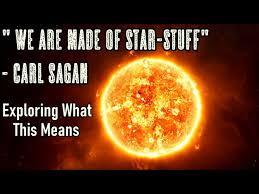“Humanity is at a painful point in history. We’re between paradigms, between stories. In the Western world, the old story is largely played out — the tale of the monotheistic god . . . is going out with a snarl, as evidenced by the hostile, violent, truth-denying politics associated with the segments of the population most invested in the old story. A sense of dislocation and pessimism pervades society. The culture has lost its bearings.
“We need a new story.”
So writes Yale’s Tom Krattenmaker in The Humanist magazine. I first encountered him in a 2016 Albany forum on the Bible, hosted by the Massachusetts Bible Society. He seems to sit at the intersection between religion and atheism, trying to bridge those worlds.
Krattenmaker notes that Nietzsche long ago declared God dead. While many haven’t seen the obit, others have, and Christian nationalism’s current political assertiveness is actually the desperate rear-guard effort of a doomed idea, rejected by increasing numbers. A big factor, but not the sole one, in the cultural upheaval Krattenmaker describes.
His Humanist essay does propose the “new story” he says we need, to supplant religion’s. A story “that answers the questions of our time, that makes sense of our existence, that provides context — provides psychological and emotional mooring — for this mysterious thing called life.”
He finds it rooted in Carl Sagan’s observation that we’re all actually “star stuff” — totally comprised from molecules originating in exploding stars. That, to Krattenmaker, is such a big thing that it’s “something to build our values and lives around.”
Pursuing this idea, he invokes environmental proselytizer Sam King, who “finds Meaning, inspiration, and an ethical foundation through deep engagement with the story of the universe and the life it spawned.” Something Thomas Berry called “ecozoic consciousness.”
Accordingly Krattenmaker envisions this supplanting conventional religions. “Imbuing science with the sense of wonder and excitement it deserves.” Going on to say that “what we value, of course, is what forms our values.” [His emphasis.] And what we should value above all is the planet making our lives possible. So it all comes down to a new paradigm apotheosizing a sort of spiritualistic environmentalism, “to transform our relationship with the earth from exploitation to regeneration.”
Not exactly a surprising novel idea. Quite a lot of people think this way; for some it’s already a quasi-religion. Which is fine. Though it’s far from clear how it devolves from the star stuff “origin story.” And I do not see it as the be-all and end-all philosophical/psychological foundation for a next stage of culture/consciousness, as does Krattenmaker.
I’ve sometimes fantasized a new church — not another supernaturalist religion, but rather a vehicle for people to pursue the quest for meaning and values in a sound healthy way, grounded in truths revealed by science, free of the old deistic crap which actually messes up that quest. It would incorporate what Krattenmaker describes — being anchored in the cosmic reality that actually does define our existence.
However, where I differ importantly from him is in not seeing the “star stuff” stuff as at all central. Indeed, to quote his own initial comment: “Cool idea, not sure how it applies to anything.” [His italics.]
The problem is that however literally true Sagan’s line is, for human individuals trying to make sense of their lives, it’s not much help. It’s ethereal, kind of abstract, detached from everyday life, no more pragmatically useful than looking to a nonexistent god.
My own take is embodied in the highly apt term humanism, a philosophy that does point us to meaning and values grounded in our everyday reality. Centered not upon things that happened incomprehensibly far away and long ago among the stars, but instead upon our here-and-now. Specifically, being a human living among humans. How we choreograph that is everything. The only possible true source of meaning and values for us. (This would be a core precept of my fantasized church.)
However “cool” the “star stuff” notion may seem, its unfortunate corollary is (to quote the Bible!) dust to dust. We go back to being star stuff; one’s existence a fleeting cosmic happenstance, with inevitable ultimate annihilation. Our only meaning and values reside in what we do with that tiny blip of existence while we have it.
The cosmos of star stuff is cold and uncaring. Only the feelings of beings that feel can matter. Without that, whether the universe even exists or not is meaningless. The only meaning lies in how we make ourselves, and each other, feel while we can.
Religions only block our seeing this truth by putting false gods in the way. My humanism in contrast puts humanity at the center; humanity as the thing I am most importantly part of. Loving humankind, seeking the greatest good for the greatest number of us. Nothing else matters.
This post first appeared on The Rational Optimist | Frank S. Robinson's Blog On Life, Society, Politics, And Philosophy, please read the originial post: here

